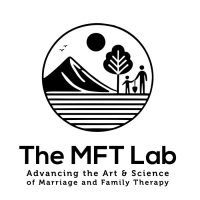A Systemic Approach to Healing
Marriage and Family Therapy (MFT) is a distinct professional discipline focused on understanding and improving relationships — between partners, within families, and across generations. Unlike individual therapy, which primarily works with one person’s thoughts and feelings, MFT sees problems in the context of relationships and systems. In short, marriage and family therapists don’t just ask, “What’s wrong with you?” — they ask, “What’s happening between you?” (Sprenkle & Blow, 2004).
Core Beliefs of MFT
- Relationships shape mental health and well-being (Gehart, 2012).
- Problems are not isolated to individuals but emerge within relational patterns (Hanna & Brown, 2004).
- Change happens not just inside individuals, but between them (D’Aniello et al., 2016).
- Cultural context matters — including family traditions, spirituality, and historical experiences (Falicov, 2014).
Why MFT Matters in Hawaiʻi
Families in Hawaiʻi are richly diverse, shaped by Native Hawaiian culture, immigration waves from Asia and the Pacific, and modern American influences (McCubbin & Marsella, 2009). This multicultural, multi-generational environment means that family challenges are often complex — blending issues of communication, identity, cultural expectations, and changing family roles.
Marriage and family therapists are trained to work with these layers of meaning, helping families honor their cultural roots while also adapting to life’s challenges. This makes MFT particularly valuable in Hawaiʻi, where healing often includes not just the mind, but the spirit, the ʻohana (family), and the ʻāina (land) (Kral et al., 2011).
What MFTs Do
Marriage and family therapists work with:
- Couples struggling with communication, conflict, intimacy, or life transitions.
- Families navigating changes like divorce, blending families, parenting challenges, or caregiving for elders.
- Individuals whose personal struggles are shaped by family dynamics — such as anxiety, depression, or trauma.
- Communities to address broader relational challenges like intergenerational trauma, cultural disconnection, and systemic oppression.
Training and Approach
MFTs complete specialized graduate training that includes:
- Systemic Thinking: Understanding problems in relational context, rather than isolating symptoms within individuals (Hanna & Brown, 2004).
- Cultural Competence: Working in ways that honor each family’s cultural, spiritual, and historical story (McGoldrick & Hardy, 2019).
- Evidence-Informed Practices: Using approaches that have been shown to help families thrive (Lebow, 2019).
At the Marriage and Family Therapy Lab at UH Mānoa, this training blends academic study with hands-on practice, ensuring students graduate ready to serve families across Hawaiʻi with skill, cultural humility, and heart.
Research and Development Initiatives
The UH Mānoa MFT Research Lab is developing a comprehensive research program that addresses the unique needs of families in Hawaiʻi. Through systematic reviews, meta-analyses, and innovative research projects, the lab aims to contribute to the field while developing culturally responsive interventions (Lebow, 2019).
Strategic partnerships with community organizations help leverage resources for research funding opportunities and community engagement initiatives. The lab’s focus on both research excellence and practical application ensures that findings translate directly into improved services for families (McGoldrick & Hardy, 2019).
Want to Learn More?
Explore how the MFT Lab is helping train the next generation of therapists, or reach out if you’re interested in getting involved.
References
D’Aniello, C., Nguyen, H. N., & Piercy, F. P. (2016). Cultural sensitivity as an MFT common factor. The American Journal of Family Therapy, 44(5), 234-244. https://doi.org/10.1080/01926187.2016.1223565
Falicov, C. J. (2014). Latino families in therapy (2nd ed.). Guilford Press.
Gehart, D. R. (2012). The mental health recovery movement and family therapy, part I: Consumer-led reform of services to persons diagnosed with severe mental illness. Journal of Marital and Family Therapy, 38(3), 429-442. https://doi.org/10.1111/j.1752-0606.2011.00230.x
Hanna, S. M., & Brown, J. H. (2004). The practice of family therapy: Key elements across models (3rd ed.). Cengage Learning.
Kral, M. J., García, J. I. R., Aber, M. S., Masood, N., Dutta, U., & Todd, N. R. (2011). Culture and community psychology: Toward a renewed and reimagined vision. American Journal of Community Psychology, 47(1-2), 46-57. https://doi.org/10.1007/s10464-010-9367-0
Lebow, J. L. (2019). Current issues in the practice of integrative couple and family therapy. Family Process, 58(3), 610-628. https://doi.org/10.1111/famp.12460
McCubbin, L. D., & Marsella, A. (2009). Native Hawaiians and psychology: The cultural and historical context of indigenous ways of knowing. Cultural Diversity and Ethnic Minority Psychology, 15(4), 374-387. https://doi.org/10.1037/a0016774
McGoldrick, M., & Hardy, K. V. (Eds.). (2019). Re-visioning family therapy: Addressing diversity in clinical practice (3rd ed.). Guilford Press.
Sprenkle, D. H., & Blow, A. J. (2004). Common factors and our sacred models. Journal of Marital and Family Therapy, 30(2), 113-129. https://doi.org/10.1111/j.1752-0606.2004.tb01228.x
